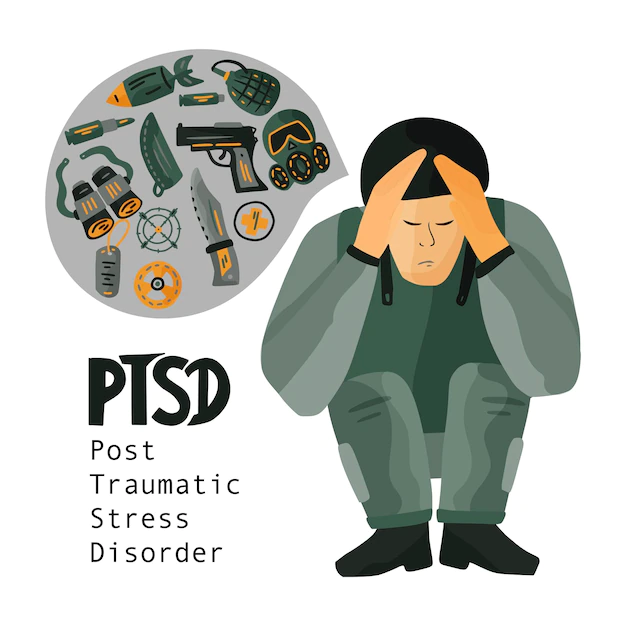People who work in emergency services, such as paramedics, police officers, or firefighters, are often the first responders to traumatic incidents. As a result, they may be at a higher risk of developing post-traumatic stress disorder (PTSD) due to their job. Symptoms of PTSD can be life-changing and may even force you to leave your job. But thankfully, help is at hand. With the right support, it is possible to get your life back on track. We explore what PTSD is and its potential consequences if left untreated. Moreover, we explain why so many emergency service workers develop this condition and provide tips on how you can access help if you feel that you might have it yourself.
What is PTSD?
Post-traumatic stress disorder is an anxiety disorder that can develop after experiencing a traumatic event. A traumatic event is something that makes you feel very scared or upset, and that affects you deeply. The stress caused by a traumatic event can change the way your brain works. This can result in symptoms of PTSD. These include flashbacks, difficulty sleeping, nightmares, feeling very anxious, trouble concentrating, and being easily upset or irritated. You may also try to avoid things that remind you of the trauma, such as places or people. Many types of events can lead to PTSD, including sexual assault, military combat, terrorist attacks, car accidents, serious injuries, or even natural disasters such as floods, earthquakes, or fires. PTSD can happen at any age and to people of any gender. It is not a sign of weakness or something that can be controlled. There are many effective treatments for PTSD. The sooner you start, the better your chances of recovery. You can find the top Christian PTSD treatment centers.
Why are so many emergency workers diagnosed with PTSD?
Emergency workers are more likely to experience traumatic events at the workplace than other professions. Consequently, they may be more likely to develop PTSD due to these events. Not only are they likely to be the first responders to traumatic events, but they are also more likely to experience one of the following: witnessing death or injury, being exposed to blood or body fluids, or being targeted by the perpetrator. This can lead to post-traumatic stress disorder or PTSD.
The symptoms of PTSD
– Flashbacks – People experiencing PTSD may experience flashbacks, particularly when exposed to something that resembles or symbolizes the traumatic event. For example, someone who suffers a car crash may feel like they are in the car again, despite sitting at their desk at work. – Intense feelings – Some people with PTSD may have intense anxiety or fear related to the trauma, even though they are no longer in danger. Others may feel numb or detached from their feelings, including their ability to experience pleasure. – Sleep problems – PTSD can cause problems with sleep, including difficulty falling asleep, staying asleep, or waking up too early. – Negative thoughts – PTSD can cause feelings of shame, guilt, and self-blame for being involved in the traumatic event, even when people know the event was not their fault. It can also cause people to be extremely self-critical or have pessimistic thoughts. – Behaviors – PTSD can cause people to engage in self-destructive behaviors, such as abusing alcohol, drugs, or even food. It can also make people avoid things that could be associated with the trauma, such as places, other people, or even their thoughts.
Potential consequences of untreated PTSD
Depending on the severity of the symptoms, PTSD can significantly impact your life. Left untreated, it can result in significant psychological problems and even lead to suicide. It can cause problems in your relationships, damage your career, and impact your health. It is important to note that PTSD is not a condition that military veterans only suffer. Any person who has experienced a traumatic event can develop PTSD, including those working in the emergency services.
How to get help for PTSD
If you think you might have PTSD, it is important to seek help. You might feel ashamed or embarrassed and worry that you are a burden, but you are not alone. Getting help can be an important step toward reducing the symptoms of PTSD and regaining a normal life. There are some treatments available for PTSD, including talking therapies and medication. It is important to discuss your options with your doctor and to find a treatment that works for you. – Talking therapies – Examples of talking therapies for PTSD include cognitive behavioral therapy (CBT), eye movement desensitization and reprocessing (EMDR), and mentalization-based therapy (MBT). Talking therapies can help you to understand better and manage your symptoms. – Medication – Selective serotonin reuptake inhibitors (SSRIs), such as Prozac or Zoloft, are often prescribed for PTSD. Other medications may also be prescribed, depending on your symptoms.
How common is it?
As mentioned earlier, PTSD can occur in anyone who has experienced a traumatic event. Any emergency worker could be at risk of developing this condition. However, a few specific groups of people are at a higher risk of developing PTSD. Specifically those who have suffered a traumatic event in their past that has gone untreated, those who have a genetic predisposition toward developing mental health disorders, and those with pre-existing mental health issues.
Conclusion
PTSD is a condition that affects a significant number of emergency workers. It can develop as a result of experiencing a traumatic event at work and can profoundly impact a person’s life if it goes untreated. It is important for emergency workers to know the symptoms of PTSD and to seek help for it if necessary.


